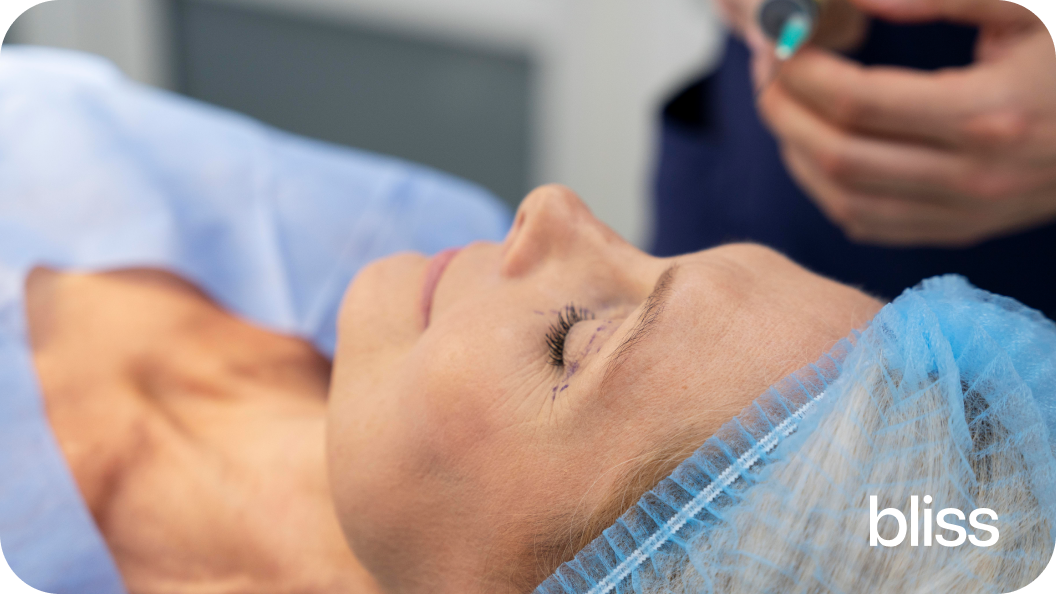How Your Sleep Routine Could Be Sabotaging Your Surgical Results

You might think of your upcoming procedure as purely physical, but your sleep patterns leading up to and after surgery play a surprisingly big role in how well you heal. If there was a time to ever take the term “beauty sleep” seriously, it’s when you’re gearing up for a procedure and in recovery. So, let’s get into why a solid sleep routine matters at all.
Why Sleep Matters Before Surgery
Deep sleep stages trigger growth hormone release, a key factor in tissue repair and regeneration. If these stages are disrupted, your body may not recover as efficiently. Sleep also affects your immune system, pain perception, mood, and even your risk of complications. This can contribute to post-op complications. It’s like not stretching before your workout session; without a warm-up and some decent prep, you’re body will pay for it later.
Sleep disturbances after surgery are common, but they often reflect pre‑operative sleep health, too. For example, one study even found that 69% of patients post‑major surgery reported poor sleep quality. Bottom line: Your sleep routine isn’t just “nice to have.” It can influence your surgical outcome from day one.
How a Poor Sleep Routine Sabotages Results
Here are the specific ways that weak sleep habits can undermine your surgical success:
Heightened pain sensitivity
If your sleep is fragmented or short, your nervous system becomes more sensitive to pain. That means more discomfort after surgery, possibly more reliance on analgesics (which come with side effects), and slower mobility. Basically, if you want to reduce the amount of discomfort you feel post-op, you’ll want to make sure you’re getting some quality shut-eye before and immediately after you roll out of the operating room.
Decreased immune function & higher complication risk
Insufficient rest weakens immune defenses and can interfere with proper wound healing. Some studies show that worse sleep architecture (less deep sleep, more awakenings) correlates with longer hospital stays. We’d all rather be at home, in the comfort of our own bed, after surgery. To make sure your chances of returning to your place are higher after the standard inpatient experience, rest as much as you can prior.
Delayed functional recovery & poor quality of sleep after surgery
A review found that postoperative sleep disturbance was an independent predictor of functional impairment 3 months later. And one study of ambulatory surgery found that patients with pre‑operative sleep disturbance had slower psychomotor recovery in the early post‑operative phase.
Loss of restorative sleep stages
Sleep after surgery tends to be fragmented, with less slow‑wave (deep) sleep and altered REM. That means less “true recovery” during the night. But to take it a step further, good sleep hygiene, including consistent bedtime, proper environment, and avoidance of stimulants, is modifiable, correlates with worse sleep and worse pain outcomes.
What a Blissful Pre‑surgery Sleep Routine Looks Like
We believe empowerment + innovation means you’re in the driver’s seat. Let’s get your sleep routine set up right so you walk in ready. Here’s how:
Two‑to‑three‑week prep (if possible)
- Start by tracking your current sleep: when you go to bed, when you wake, how refreshed you feel.
- Gradually shift toward a consistent bedtime and wake time, even on weekends.
- Make sure your environment supports uninterrupted sleep: cool, dark, comfortable.
Nightly habits for a better sleep window
- Avoid caffeine or high‑intensity exercise for the 4–6 hours before bed.
- Limit screen exposure for at least 30 minutes before lights‑out; blue light disrupts your circadian rhythm.
- Wind down actively: light reading, gentle stretch, or meditation (even 5 minutes helps).
- Create a “sleep zone”: remove bright lights, minimize noise, keep devices away.
Pre‑surgery sleep checklist (24–48 hrs out)
- Prioritize at least 7 hours of actual sleep the night before.
- Avoid alcohol close to bedtime; it fragments sleep and reduces slow‑wave sleep.
- Inform your care team if you have chronic sleep issues (apnea, insomnia); these need to be factored in.
- Recovery plan: set up your bed or sleeping area in advance (pillows, privacy, comfortable temperature) so post‑op you’re ready.

Post‑surgery sleep support
As your routine transitions to recovery mode, allow for naps. But, keep them short (20–30 mins) to avoid interfering with night sleep. Sleep in as natural a posture as your procedure allows. If the surgery involves position changes (e.g., breasts, body contouring), ask about recommended sleep positions.
Manage pain proactively. Pain disrupts sleep massively, so early and effective pain control supports better sleep. And most importantly, be kind to your sleep on tired nights. Don’t panic if one night is rough; just reset the next night.
Why the Bliss-Worthy Approach Matters
Because we center empathy. We understand surgery can feel big, the anticipation, the signals. Good sleep helps you feel grounded. And of course, we bring empowerment.
Set up a call with your Care Advisor, and we’ll help you set up a routine that you control, enhancing your outcome and boosting your confidence.
After all, your sleep routine isn’t just a luxury. It’s a key piece of your surgical puzzle. If you walk into your procedure under‑rested, you’re giving your body one less tool at the moment it needs all of them: healing hormones, immune power, optimal pain response, and strong recovery curves.
Start early. Set the scene. Sleep well. Your procedure and your precision care deserve that kind of foundation.
FEATURE OF THE WEEK
Subscribe for cosmetic insights.
Get the latest in aesthetic innovation, support, and self-love straight to your inbox.



.png)












Lorem ipsum dolor sit amet, consectetur adipiscing elit. Suspendisse varius enim in eros elementum tristique. Duis cursus, mi quis viverra ornare, eros dolor interdum nulla, ut commodo diam libero vitae erat. Aenean faucibus nibh et justo cursus id rutrum lorem imperdiet. Nunc ut sem vitae risus tristique posuere. uis cursus, mi quis viverra ornare, eros dolor interdum nulla, ut commodo diam libero vitae erat. Aenean faucibus nibh et justo cursus id rutrum lorem imperdiet. Nunc ut sem vitae risus tristique posuere.
DeleteLorem ipsum dolor sit amet, consectetur adipiscing elit. Suspendisse varius enim in eros elementum tristique. Duis cursus, mi quis viverra ornare, eros dolor interdum nulla, ut commodo diam libero vitae erat. Aenean faucibus nibh et justo cursus id rutrum lorem imperdiet. Nunc ut sem vitae risus tristique posuere. uis cursus, mi quis viverra ornare, eros dolor interdum nulla, ut commodo diam libero vitae erat. Aenean faucibus nibh et justo cursus id rutrum lorem imperdiet. Nunc ut sem vitae risus tristique posuere.
Delete